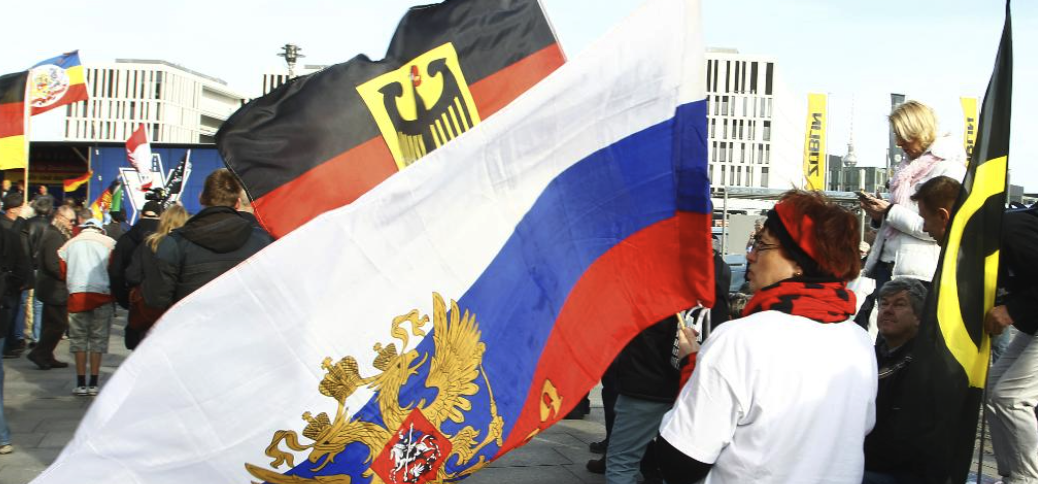On the day that the horrific images of the Russian atrocities in Bucha went around the world, a different set of pictures also made for uncomfortable headlines in Germany: around 400 vehicles paraded Russian flags through Berlin.
Ostensibly, the 900 demonstrators had draped their vehicles in the Russian tricolour and took to the streets of the German capital in order to draw attention to what they perceive as growing hostility towards Russians in Germany. But the reality is that the community they claim to speak for is diverse and deeply conflicted about the war in Ukraine.
It is a surprisingly little known fact (outside of Germany at least) that there are well over two million Russian native speakers in Germany. The estimated overall figure for people with Russian roots in the country ranges between three and six million. The great majority have emigrated since the dissolution of the Soviet Union, but many have roots that go back to the Cold War or the Second World War.
This vast community has always been a broad mix of people. There are the so-called Russia Germans, who see themselves as ethnic Germans born in the territory of the Soviet Union and there are Russian Jews with family links in Germany. Both of these groups often want to be seen as Germans rather than Russians. They usually speak German and integrate quickly.
But there are also Russian intellectuals who have fled persecution, family members of Russian Germans and economic migrants — groups that have tended to retain a Russian identity. In addition, there are also many immigrants from other Eastern European nations, including Ukraine (145,500 Ukrainians already lived in Germany in 2020, now the numbers are much higher due to the influx of refugees).
Since the beginning of the Russian invasion of Ukraine, the loyalties of this vast and diverse community have come under intense scrutiny. After Berlin Mayor Franzistka Giffey had condemned the “motorcade of shame” in her city, a similar spectacle with 190 cars played out in the south-German city of Stuttgart last weekend. The local Minister President Winfried Kretschmann said that he couldn’t prevent such unpalatable events as they had been legally registered, but he found them “difficult to stomach in the current situation.”
As Germany has come under enormous international pressure to do more to help Ukraine in its struggle against the increasingly savage onslaught by Russian forces, images of Russian flags being paraded through German streets are not a great look. But the reality is that the instigators are only a one fraction of a vast group of people with Russian backgrounds — and many of them are egged on directly by Moscow.
Bernd Fabrittius, Federal Commissioner for Ethnic German Resettlers, says that “there are individual activists on the Russian side who deliberately create a narrative that Russians and Russia Germans are not safe in Germany any longer since the outbreak of war. Among their number are, for example, the “German-Russian Brotherhood”, a subsidiary of Putin’s ‘Night Wolves’” (the latter is a motorcycle club with close ties to Putin and a history of nationalist activism).
While it can’t be denied that there is a vociferous pro-Putin segment among the Russian community in Germany, the opposite is true as well. I recently spoke to my old Russian teacher from East Germany again who told me her Russian daughter-in-law had just taken in a Ukrainian cousin plus her friend and her daughter. This is a typical example of the close family links of this community to both Russia and Ukraine. Most see the conflict as a ‘Brother’s War’ and just want it to end.
Moscow’s clash with Europe is mirrored in Germany’s Russian community. The motorcades of the last couple of weeks won’t be the last time we see the conflict spill out into German streets.











Join the discussion
Join like minded readers that support our journalism by becoming a paid subscriber
To join the discussion in the comments, become a paid subscriber.
Join like minded readers that support our journalism, read unlimited articles and enjoy other subscriber-only benefits.
Subscribe